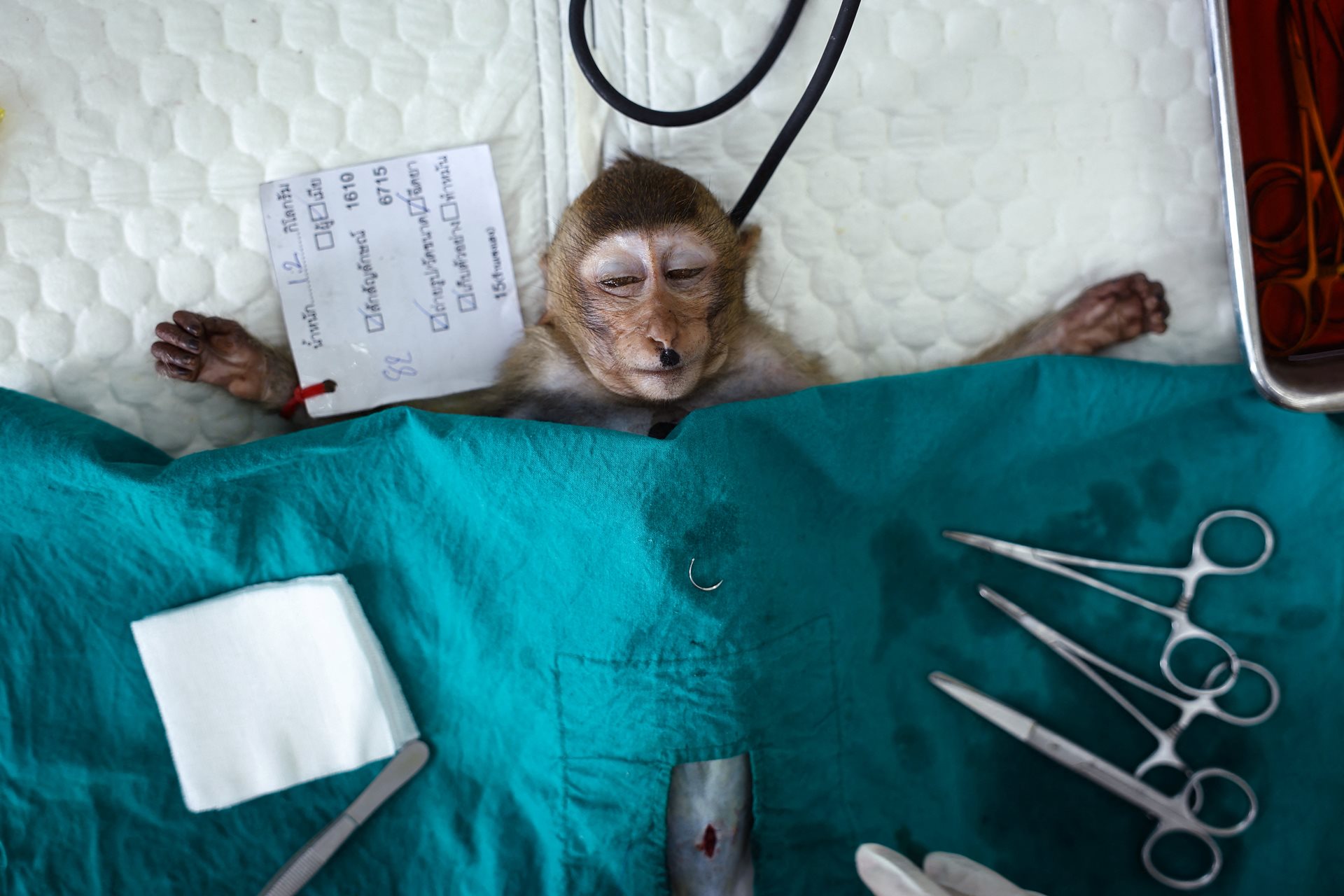A young long-tailed macaque lies sedated as veterinarians from the Department of National Parks, Wildlife and Plant Conservation carry out a sterilization procedure, in Lopburi, Thailand.
Long-tailed macaques, believed to bring good fortune, are so much part of the identity of Lopburi, north of Bangkok in Thailand, that it has earned the nickname “Monkey City”. But a booming monkey population has brought problems, compelling local authorities to intervene with a sterilization program to bring the situation back under control.
For generations, the macaques gathered mainly around Lopburi’s ancient Phra Prang Sam Yot temple and Sarn Phra Karn shrine, where they were encouraged as some people consider them sacred. Tourists flocked to see them, giving them fruit. Many citizens also loved the creatures, feeding them and even throwing them a fruit banquet during an annual November Monkey Festival.
Over the years the monkey population in Lopburi city center boomed, reaching 3,121 by 2020. The macaques became increasingly aggressive as they competed for food, confronting residents, stealing, and fighting among themselves. Lockdown during the COVID-19 pandemic exacerbated the situation, as far fewer people fed the monkeys – tourism had dried up and citizens were confined to their homes. Marauding monkeys became even more belligerent, occupying buildings and causing accidents. Some residents took to caging themselves in their own houses; others to repelling the animals with slingshots. Some tried to placate the monkeys with snacks, while others said the junk food hyped up the bad behavior.
Post-lockdown, it became clear that the monkey problem was out of hand. From April 2024, authorities intervened to bring the situation back under control. They boosted a sterilization program they had begun during the pandemic, and introduced a scheme to confine the monkeys to a designated area.
Five months after the start of the government's campaign, Lopburi's primate pandemonium finally came under control, with around 1,600 monkeys in captivity – though some residents regretted the vanishing of an integral part of the city.
Are you a photographer and/or passionate about press freedom? Sign up for our newsletter to stay updated on our annual contest and to hear about exhibitions near you.

